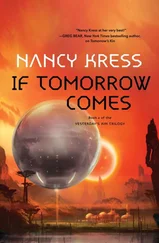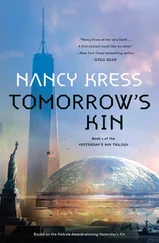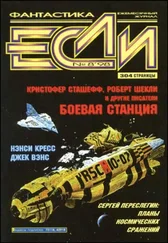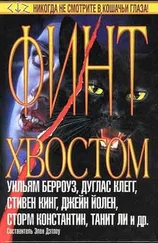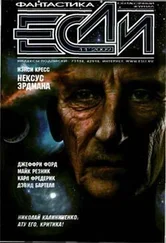“NP-complete problems,” said Maddie.
Dr. Waxman looked at her.
“Dad explained them to me.”

That’s my girl.
“Right. They show up in all kinds of applications: circuit layout, sequence alignment in bioinformatics, set partitioning, and so on. The thing is, while computers have trouble with them, some humans can come up with very good solutions—though not necessarily the best solution—very quickly. And David was one of them. He had a gift for circuit layout that our automated algorithms could not touch. That was why he was considered our most important resource.”
“Are you talking about intuition?” her mother asked.
“Sort of. When we say ‘intuition,’ often what we mean are heuristics, patterns, rules-of-thumb that can’t be articulated because they’re not consciously understood as such. Computers are very fast and very precise; humans are fuzzy and slow. But humans have the ability to extract insight from data, to detect patterns that are useful. It’s something that we’ve had trouble recreating with pure artificial intelligence.”
Maddie felt a chill in the pit of her stomach.
“What does this have to do with my dad?”
Faster, faster. Everything is so slow.
Dr. Waxman avoided looking at her. “I’m getting to that. But I have to explain the background to you—”
“I think you’re just dragging this out because you’re ashamed of what you’ve done.”
Dr. Waxman stopped.
My girl.
Dr. Waxman gave a light chuckle, but there was no mirth in his eyes. “She’s impatient, like you.”
“Then get to the point,” Mom said. Dr. Waxman started at the icy intensity in her voice. Maddie reached for her mother’s hand. Her mother squeezed back, hard.
Dr. Waxman took a deep breath, blew it out. “All right,” he said in a resigned monotone. “David was ill; that was true. You remember that he died during surgery, the final attempt to save him that you were told had very little chance of success?”
Mom and Maddie nodded together. “You said only the clinic at Logorhythms could do it because it was so advanced,” Mom said. “We had to sign those liability waivers for you to operate.”
“What we didn’t tell you was that the surgery wasn’t intended to save David’s life. His condition had deteriorated to the point that the world’s best doctors couldn’t have saved him. The surgery was a deep scan of his brain, meant to save something else.”
“A deep scan ? What does that mean?”
“You’ve probably heard that one of Logorhythms’s moonshot projects is to completely scan and encode the neural patterns of a human brain and to recreate them in software. It’s what the Singularity nuts call ‘consciousness uploading.’ We’ve never succeeded—”
“ Tell me what happened to my husband! ”
Dr. Waxman looked miserable.
“The scan, because it needs to record neural activity with such detail… requires destruction of the tissue.”
“ You cut up his brain? ” Mom lunged at Dr. Waxman, who held up his hands in a vain attempt to defend himself. But the screen had come alive again, and so she stopped.
There was no pain. No no no pain. But the undiscovered country, oh, the undiscovered country country.
“He was dying,” said Dr. Waxman. “We were absolutely certain of that before I made the decision. If there was a chance to preserve something of David’s insights, his intuition, his skill, however slim, we wanted—”
“You wanted to keep your top engineer as an algorithm,” said Maddie, “like a brain in a jar. So that Dad would go on working for you, making money for you, even after he died.”
Die, die, die. DIE.

Hate.
Dr. Waxman said nothing, but he lowered his face and hid it in the palms of his hands.
“Afterward, we were very careful. We tried to re-encode and simulate only the patterns we believed had to do with circuit layout and design—our lawyers wrote us a memo assuring us that we had the right since the know-how was really Logorhythms’s intellectual property, and didn’t belong personally to David—”
Mom almost lunged out of her chair again, but Maddie held her back. Dr. Waxman flinched.
“Did David make a lot of money for you?” She spat the words out.
“For a while, yes, it appeared that we had succeeded. The artificial intelligence, which modeled the extracted portions of David’s technical know-how and skills, functioned as a meta-heuristic that guided our automated systems very efficiently. In some ways, it was even better than having David around. The algorithm, hosted on our data centers, was faster than David could ever hope to be, and it never got tired.”
“But you didn’t just simulate Dad’s intuition for circuit layout, did you? ”
The wedding dress; layers of lines. A kiss; a connection. The nightstand, the Laundromat, the breath on a winter’s morning, Maddie’s red apple delicious cheeks in the wind, two smiles in a flash—a thousand things make up a life, as intricate as the flow of data between transistors nanometers apart.
“No.” Dr. Waxman looked up. “At first, it was just odd quirks, strange mistakes the algorithm made that we thought were due to errors in identifying the parts of David’s mind that were relevant. So we loaded more and more of the rest of his mental patterns into the machine.”
“You brought his personality back to life,” said Mom. “You brought him back to life, and you kept him imprisoned.”
Dr. Waxman swallowed. “The errors stopped, but then came a pattern of odd network accesses by David. We thought nothing of it because, to do his job, he—it, the algorithm—had to access some research materials online.”
“He was looking for Mom and me,” Maddie said.

“But he had no way to talk, did he? Because you had not thought it relevant to copy over the language processing parts.”
Dr. Waxman shook his head. “It wasn’t because we had forgotten. It was a deliberate choice. We thought if we stuck to numbers, geometry, logic, circuit patterns, we’d be safe. We thought if we avoided the linguistically coded memories, we would not be copying over any of the parts that made David a person.
“But we were wrong. The brain is holonomic. Each part of the mind, like points in a hologram, encodes some information about the whole image. We were arrogant to think that we could isolate the personality away from the technical know-how.”

Maddie glanced at the screen and smiled. “No, that’s not why you were wrong. Or at least not the whole reason.”
Dr. Waxman looked at her, confused.
“You also underestimated the strength of my father’s love.”
• • • •
“That’s the largest tomato I’ve ever seen,” said Grandma. “You have a gift, Maddie.”
It was a warm summer afternoon, and Mom and Maddie were working in the garden. Basil wagged his tail as he lay in the sun next to the tomato plants. The small plot in the northwest corner had been cleared out a few months ago and designated Maddie’s responsibility.
“I’d better learn to grow them big,” said Maddie. “Dad says we’ll need them to be as big as possible.”
“Not that silliness again,” muttered Grandma. But she didn’t go on, knowing how worked up Maddie could get when her father’s prophesy was challenged.
Читать дальше





